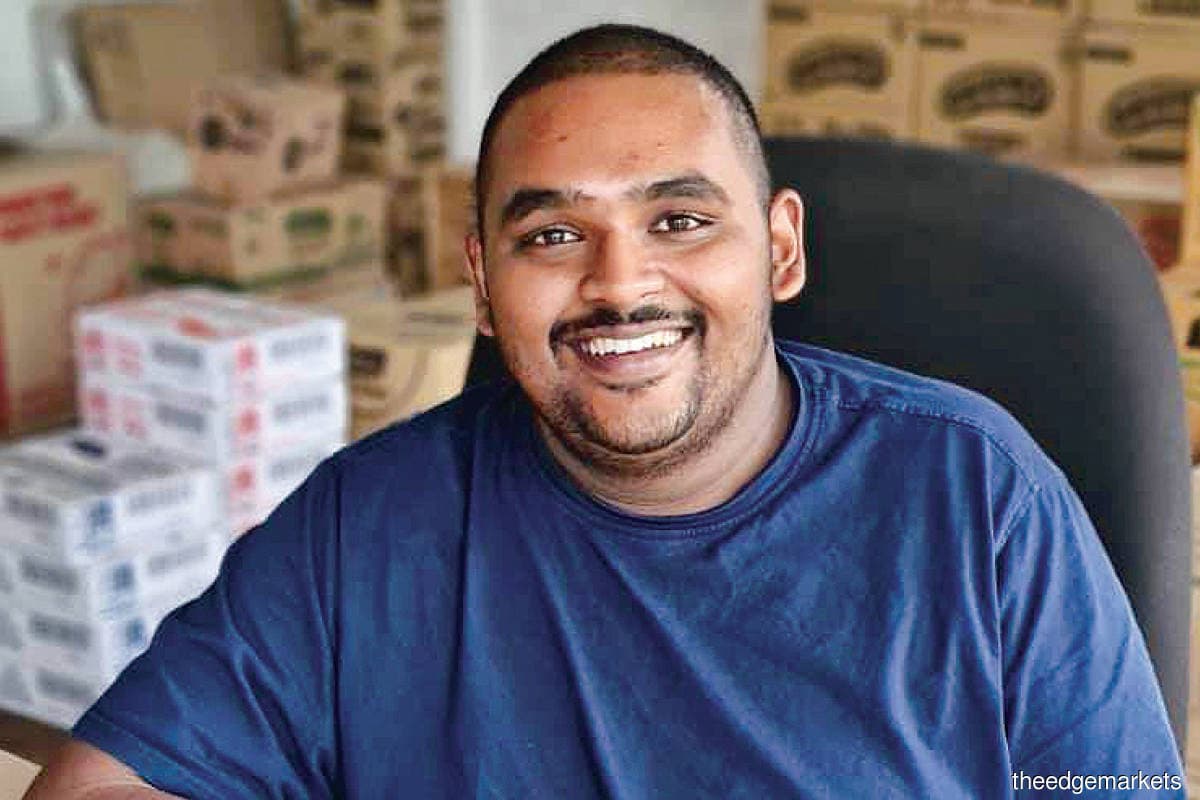
This article first appeared in Digital Edge, The Edge Malaysia Weekly on February 27, 2023 - March 5, 2023
Big brands providing fast-moving commercial goods (FMCG) appoint distributors in every region mandated to provide supplies, which go to modern trades such as large supermarkets, organised trades, wholesalers and small retailers such as mom-and-pop stores.
In the supply chain, small retailers are often overlooked as distributors tend to focus on bigger fish such as major supermarkets or wholesalers. This is because large supermarkets tend to require larger orders with fewer drop-off points. Serving smaller shops means fewer orders with more drop-off points.
Therefore, small retailers tend to get their supply from wholesalers, which presents them with a problem: availability of inventory and high prices.
An angel for these retailers in Malaysia has appeared in the form of Lapasar, which started as a business-to-business (B2B) platform in the corporate segment. As the Covid-19 pandemic set in, CEO Thinesh Kumar was shaking in his boots. It was predominantly selling office supplies and offices were not being allowed to operate due to lockdowns. In their latest “Emerging Giants in Asia-Pacific” report, KPMG and HSBC have identified Lapasar as one of 10 potential unicorns in Malaysia that could have a lasting impact on the global business landscape over the next decade.
“No purchase was taking place. What we did was to immediately pivot into wholesaling Covid-related items such as masks, thermometers and sanitisers. We figured there was an opportunity in this,” says Thinesh. “FMCG is an industry that is not affected by macroeconomic factors, be it a pandemic or inflation.”
Lapasar soon expanded its platform to serve mom-and-pop stores. “What we did for these retailers was to tell them, ‘You don’t need to go out, just download the app’,” says Thinesh.
He adds: “We guarantee stock availability for whatever we sell on the app and deliver within 48 hours for free to their doorstep. This enables them to buy in smaller quantities more often, which lets them handle their cash flow well.”
Small retailers such as mom-and-pop stores prioritise profitability, cash flow and the availability of inventory, Thinesh notes. “Our role is to serve as an advocate and aggregator for all the small retailers and secure inventory for them. Nobody else is doing it because they are not prioritised in the supply chain,” he observes. “As volumes grow, we are able to better negotiate with the brands and obtain better prices, which we can then pass down to improve their profitability.”
As a B2B platform for corporations, easing corporate procurement is the goal. “Corporate procurement has been done traditionally for the longest time via the three-quotation method,” says Thinesh.
The three-quotation method is described as a form of request for quote (RFQ) wherein three appropriate vendors are chosen from a database for quotes to be collected. Thereafter, the order is issued to the supplier offering the best quote. This is typically done through spot buying, which is obtaining daily purchases that are the lowest in price.
“It’s about 20% of their yearly spend, but is 80% of their work,” says Thinesh.
Lapasar introduced an e-commerce experience for corporations whereby they could make the same purchases in a matter of minutes or seconds as everything is recorded in the system. Lapasar’s clients include Telekom Malaysia, Petroliam Nasional Bhd (Petronas) and Tenaga Nasional Bhd.
Today, the FMCG wholesale segment drives Lapasar’s business. For small retailers, Thinesh says there are three fundamentals to catering to their needs: the right price, fast delivery and available inventory.
With small retailers, the sales cycle is typically much shorter than that of corporations. “It can take us six to eight months, or even a year, to close a deal with a corporation. Meanwhile, with a mom-and-pop store, it takes about five to 10 minutes.”
Lapasar’s FMCG wholesale segment currently makes up about 75% of its business and will only continue to grow, adds Thinesh.
A major difference between dealing with corporations and small retailers is the number of clients Lapasar handles at any given time. For instance, Lapasar only deals with approximately 10 corporations at one go, which is easier to manage. This is compared to the 5,000 clients in the wholesale segment.
Lapasar’s technology is split into three fundamental aspects — order management, the mobile app and a variety of operational apps.
“Order management basically involves processing the daily orders that come in alongside information from the customers, credit limit, location checks, route optimisation and so on,” says Thinesh.
The mobile app is built in a very simple manner.
“It’s merely an ordering app that gives them (the clients) reward points and credit limits. They can track everything there and order with us,” he adds. “The tech serves as a bonus to [small retailers]. It allows ease of ordering, but it’s not everything to them.”
Thinesh believes that conversational commerce could be the next step forward. “Businesses want to talk to somebody before making a purchase. We might steer towards conversational commerce, which we think is the future,” he shares.
Lapasar aims to onboard 20,000 active stores by 2025. Active stores are those that actively purchase items three or more times a month. Currently, Lapasar has 11,000 small retailers as clients, with about 5,000 of them being active.
“We want to be in the entire Peninsular Malaysia by 2025. We also want to build the largest FMCG distribution network in Malaysia. To put that in comparison, any large distributor today has about 3,000 distribution points. If we are at 20,000 distribution points, we will be the largest,” asserts Thinesh.
“What that really means is building infrastructure to move goods for businesses as fast as possible. Today, we are able to do it within 24 to 48 hours, but foresee that we can bring it to under one day.”
Save by subscribing to us for your print and/or digital copy.
P/S: The Edge is also available on Apple's AppStore and Androids' Google Play.